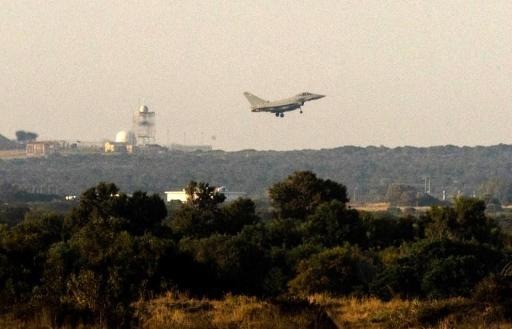The strikes on Saturday morning in Syria by United States, France and the United Kingdom have the backing of the EU. The Belgian government expressed understanding of the strikes. The intervention followed the suspected use of chemical weapons by the Syrian regime in Damascus suburb Douma a week ago.
More than 100 cruise missiles ware launched against weapons storage and research facilities near Damascus, Homs and Aleppo to deter the Syrian regime from future use of chemical weapons.
The strikes were limited and will not change anything on the ground. The regime had time to take precautions and to move and hide equipment. Syria and Russia claimed that some of the missiles had been intercepted but this was denied by the powers participating in the strikes.
The civil war in Syria has lasted since 2011 and with Russian and Iranian support the regime has reconquered large parts of the country.
The estimated death toll is over half a million, of which more than 200 000 are civilian deaths. The United Nations stopped counting in 2016 when it said that 400 000 people had been killed. The absolute majority have been killed by conventional weapons without the international community intervening to protect civilians by establishing no-fly zones.
EU statement
In a statement issued by High Representative Federica Mogherini on Saturday on behalf of the EU, she said that “The EU is supportive of all efforts aimed at the prevention of the use of chemical weapons. It finds it deeply shocking that the international community is still confronted with the use of chemical weapons.”
The EU reiterated its “strongest condemnation of the repeated use of chemical weapons by the Syrian regime, as confirmed by the OPCW/UN Joint Investigative Mechanism (JIM) and as reported continuously in recent months in Eastern Ghouta and other areas in Syria, including the most recent reports of a devastating chemical attack on Douma.”
The OPCW stands for the Organisation for the Prohibition of Chemical Weapons. In 2013 it was charged with overseeing the elimination of stockpiles of chemical weapons in Syria but apparently not all stockpiles were shipped out or destroyed.
The statement says that the EU was informed about targeted US, French and UK airstrikes on chemical weapons facilities in Syria, “these specific measures having been taken with the sole objective to prevent further use of chemical weapons and chemical substances as weapons by the Syrian regime to kill its own people.”
“Accountability is a must. The use of chemical weapons or chemical substances as weapons is a war crime and a crime against humanity. Perpetrators will be held accountable for this violation of international law.”
Belgian position
Prime Minister Charles Michel wrote Saturday on Twitter that he "understands" the joint military action of the United States, France and United Kingdom in Syria. "We must now focus on political negotiations to avoid an escalation," he said.
The Prime Minister also recalled that Belgium "strongly condemns" the use of chemical weapons. Foreign Minister Didier Reynders added that chemical attacks on civilians constitute "an atrocity and a flagrant violation of international conventions".
Olivier Corten, professor of international law at the Free University of Brussels (ULB), commented that there was "no legal justification” for the strikes and that they violated international law.
The only legal justification would be a UN Security Council decision (which would be vetoed by Russia) or self-defense, according to Corten. In the long run, this way of operating could have serious consequences. "The risk of intervening without legal justification is that others may act in the same way," he warns.
The Brussels Times

